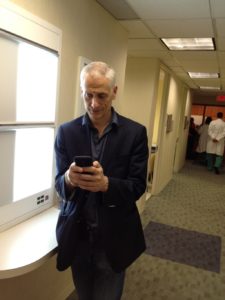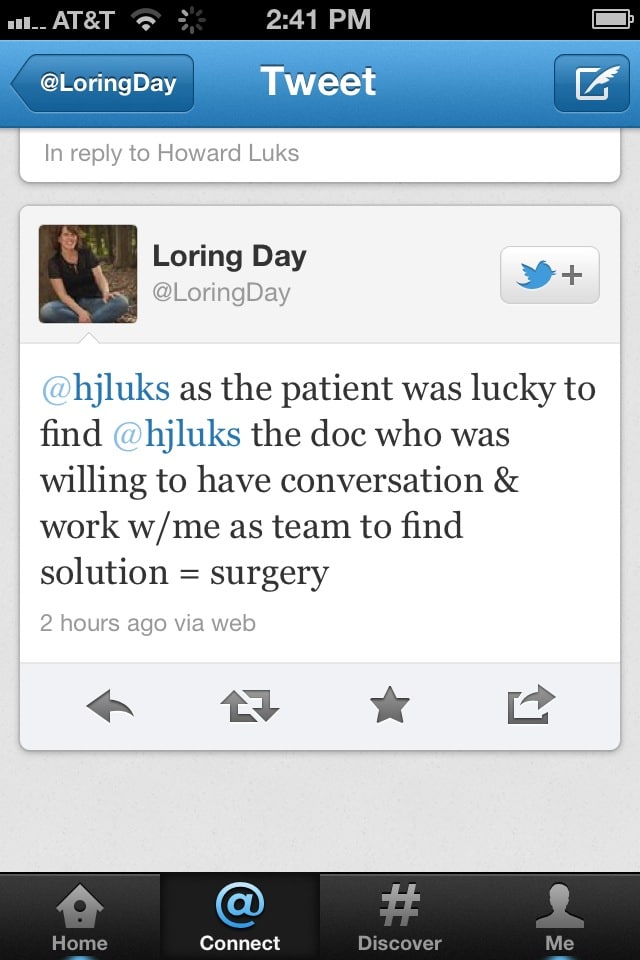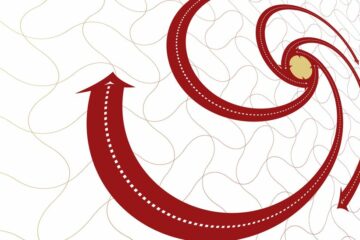

There are more ways than ever to communicate with people. In NPR.org’s “What We Have Here: A Failure To Communicate”, Kate Kamber, a student at the University of Virginia, says that in contemporary American culture, “the problem is not how to best contact someone for the sake of contact, but rather the problem is how to contact someone in a medium where the intended message can most accurately be conveyed.”
How will digital natives change the landscape for patients?
A recent survey by the Pew Internet & American Life Project reveals that texting is the favorite form of communication among young people ages 12 to 17.
What do mobile social platforms mean for the physician-patient relationship? Dr. Luks weighs in.

Do you have questions regarding an Orthopedic injury or longevity?
Do you want to talk to an expert who can listen to you for 45-60 minutes and explain the options in detail?
Dr. Howard Luks offers remote guidance sessions to review your X-ray or MRI images and explain your options.
Dr. Luks has also received hundreds of requests for educational sessions on the topics discussed in his book, Longevity Simplified.













Alexandra Yperifanos
First, this is an excellent piece. Thank you for writing it Howard.
Second – to your specific question “Would patients find value in text reminders based on these to-do lists after appointments?” Yes indeed. This could be invaluable in so many different situations — someone checking up to make sure what I am supposed to be doing is actually being done. I say bring it on! It won’t be for everyone….but those inclined to appreciate the full circle care aspect of this kind of service would be thrilled. And I think there is quite a growing community of patients like this.
What I like about this piece and your writing is that you are marrying low-tech and high-tech skills, thinking and procedures to achieve the best outcome for both patient and doctor. Most admirable. Look forward to continuing to follow your work.
Best of luck in all endeavors!
Alexandra
Than you Alexandra!
John La Puma MD (@johnlapuma)
Hi Howard: texting is the way. I’ve created a Man Plan Diet, the online version of which uses only texting for gender-specific, action-oriented messages to help men lose the gut: in our beta test, we asked men if they wanted to receive texts daily, or twice weekly, or not at all. Answer: daily. As usual, patients are ahead. Thanks for helping them lead the way.
Best
JL
Steve S.
Like it, Use it or Not – texting and I’d include “micro-blogging” – are the dominant means of communication among most people – especially those who will drive adoption: send it on your terms, receive it when you can, archive it easily, process it with NLP, tag it easier than other medium, yada, yada, etc. (so many more options than voice and images).
So who will the medical community, not just physicians but all constituents get on board?
Isn’t one of the core “goals of communication” to initiate, send, receive, process, act on and archive information in the most efficient means possible? This old-fashioned “Input-Process-Output” paradigm is being changed.
I don’t think anyone needs any stats to prove how simple it is to text and SMS and micro-blog important info. Let’s face it: e-mail sucks, waiting to get into voicemail sucks, culling voicemails and recording key info from these old-fashioned media sucks.
How do we intergrate these discrete, sometimes well-defined – sometimes not, interactions into our lifestream?
Thanks Steve…
Have to agree with you on many points. If more physicians understood the operational efficiencies gained by enabling patients to communicate through digital media I think they would be far more wiling to adopt their use.
Howard
Benoit
As a patient with Stage IV RCC, diagnosed in 2006, the simple fact of being able to text my oncologist has proven a tremendous help on numerous occasion. I recall one specific time where I texted him about a stomach problem which I felt was a side-effect of the medication I was on at the time. What I did not know was that he was at a medical conference in Germany. I found out when he texted back, but regardless of the distance, he contacted a colleague, a stomach specialist, and arranged for me to meet him at the ER the next day at 7AM, which I did. There was indeed an issue, and my meds were adjusted accordingly. Without having that line of communication, there is no way I could have received such a prompt follow up. The ‘traditional’ channels of communication would have meant either waiting days for a return call or waiting hours and hours at the ER.
Thanks Benoit! appreciate you sharing that with us! Proper communication channels and open, accessible communication channels are absolutely critical.
Marianne Vennitti
Thank you for investigating the pros and cons of this new fast paced age of emerging technology and patient care. I appreciate the progressive platform for the patient’s voice, living myself with debilitating illness for many years, as long as we don’t lose sight of the need for treating the whole person. Fast answers through technology are a great advancement for all concerned but my concern would be for those living with a complicated medical history. Until data based medical information for the patient is established will this allow for unnecessary mistakes?
John Sung Kim
Thank you for sharing Dr. Luks. I hear every day from medical practices that say, “I can’t afford (time/money/staff) to take text messages from patients.” Then when they start using a web-based patient texting platform say, “Ah! Right! My staff gets texts and not phone calls. Yeah, that’s good.”
Slowly but surely, doctors are getting it. THX for being an early adopter in the Moore Curve :)
Thanks John… You are correct. More and more docs are realizing the office efficiencies and economic benefits that accompany a digital presence with the “proper” balance of tech layered onto their platform.
Appreciate your visit and input!
hjl